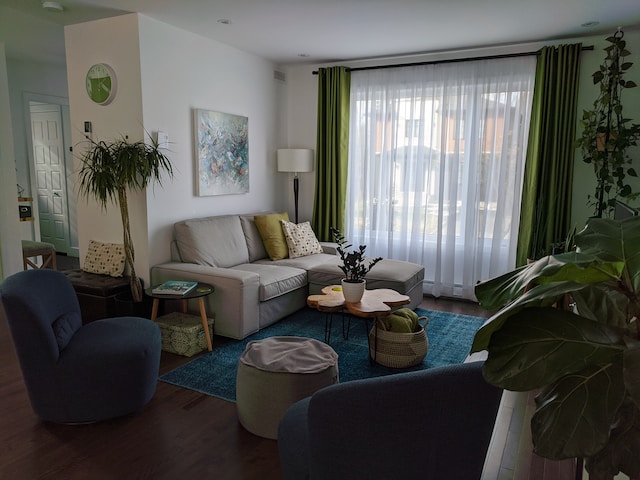Assisted living can sound like a bad word when thinking about it for your family member. To some, it seems like a prison, while others may enjoy being surrounded by constant community and food you never have to make for yourself. No matter what you think of it, it’s critical to consider your options as you age. So – what is assisted living?
There are some definite pros and cons to assisted living. If you’re interested in learning more about what assisted living is, you’re in the right place. Read on to learn more about the official definition of these locations, the pros and cons of taking on assisted living later in life, and the best age for assisted living.
What Is Assisted Living?
According to one study, two-thirds of seniors need help doing one or more daily activities, from tying shoes to heading to the grocery store to buy food. Assisted living fixes that problem, offering personalized care for older adults in a community setting, often styled like a traditional apartment building.
Assisted living isn’t up to the care level of a nursing home. Residents of assisted living facilities can walk by themselves and do most things, but they live on-site, so they can be around assistance, food, and community. It permits semi-independent living, even if you have a serious illness like mild memory loss or chronic pain.
Related: 7 Signs Your Parents Need More Help
What Are the Advantages of Assisted Living?
When considering assisted living, there are plenty of benefits you will find in the system. It allows you to live close to a group of people to foster a healthy community, provides tailored assistance and care, includes healthy and hot meals, offers games and activities, and brings a safe and supportive environment. Let’s dive deeper into each good aspect of assisted living.

Sense of Community
One of the best things that comes with residential assisted living is a sense of community. According to one study, social isolation can shorten your lifespan. Unfortunately, all too many seniors find themselves alone in their later years. Assisted living offers guaranteed groups of people to interact with on a regular basis.
Assisted living will also provide care for couples who need care together. Even in the later years of life, you can meet new people and form exciting friendships that will make your time in assisted living wonderful.
Related: Why Staying Socially Connected is Important As You Age
Tailored Assistance and Care
Medicaid-approved assisted living and other assisted living options provide tailored assistance and care, depending on your personal health. The staff at a standard assisted living location will determine what each individual needs and make a care plan, improving the quality of living substantially.
Residents who need extensive care will have access to help whenever they need it, while those who don’t need as much assistance won’t have too many intrusions to their lifestyle. Whether your family member only has slight memory troubles or can’t get dressed in the morning, assisted living will work with them in any way they need.
Healthy and Hot Meals
Studies show that eating healthy, well-rounded meals will help you live longer. Unfortunately, the older you get, the trickier it can be to cook for yourself and purchase healthy food. At an assisted living location, you will have access to hot and healthy meals whenever you need them. You also have options for transport to help with grocery shopping for snacks.
When you don’t have to cook your meals, you will have more time to hang out with other people and pick the foods you want to eat without the stress of planning your meals. It all typically comes included in your monthly payment for the facility.
Games and Activities
In assisted living, you get to partake in various games and activities. Assisted living facilities typically have something every day, ensuring residents interact with other people in the facility and engage their minds in games, new hobbies, field trips, movies, yoga, and more. Most facilities offer a calendar at the start of each month, so you’re well-informed of the offerings.
Social activities are ideal for keeping your mind and mood in the best shape. Some of the best assisted living locations even provide barber shops, beauty salons, wellness centers, and more to provide residents with the best possible quality of life.
Safe and Supportive Environment
Not only is an assisted living community a home, but it’s also a safe and supportive environment for aging with grace and comfort. Most locations have security guards ready to defend residents, gated entrances, and staff members behind their desks at all hours of the day. There’s always someone there to keep an eye on things.
Also, most assisted living locations put their potential residents through a screening process before accepting anyone. This process ensures the newcomer is a good match for the facility and checks to see if it’s safe to take in the individual. You’ll always feel comfortable if you live in an assisted living location.

What Are the Disadvantages of Assisted Living?
Of course, with any living environment, there are also disadvantages. These locations provide minimal privacy, higher levels of dependency, a more expensive price point, and stricter living policies. Let’s discuss each of the cons associated with assisted living to help you make the right choice.
Minimal Privacy
Unfortunately, assisted living apartments offer minimal privacy. If you’re moving from a home and have lived in a house all your life, it will be quite the adjustment to move into a large building with hundreds of rooms occupied by people your age. Also, some assisted living facilities require residents to share rooms at later stages (such as hospice care).
If you’re worried about living independently without being surrounded by people all the time, assisted living might be a struggle. Every common area will be full of people, so to get privacy, you might need to spend more money to get a solo room without a roommate.
Dependency
Whether intentionally or unintentionally, living in an assisted living facility could foster some sense of dependency over time. It isn’t an independent living facility, so staff members will provide help with many aspects of life. Some might feel like they are getting too much help with simple tasks.
Of course, many people will enjoy assisted living because they have serious health troubles and need someone to help them dress, bathe, and so on. However, others will feel like they’re losing their independence.
High Cost
One of the issues with assisted living for many people is the cost. It’s more expensive to live in assisted living because it provides food, care, and various activities for residents throughout the year. It’s worth it for most people, but it is something you’ll need to ensure you’re financially ready to pay for.
It’s critical to note that there will be significant variations in cost across the board. Some facilities are much cheaper than others. If you have a lower budget for your assisted living investment, do your research to ensure you get enough bang for your buck. You might need to sacrifice some features to save a few dollars on assisted living.
Stricter Living Policies
The move from living in a home to assisted living means you have to deal with the sudden addition of stricter living policies. For example, assisted living spots have curfews for their residents, specific time slots for meals, and hours visitors can visit the residence.
Some people will enjoy the rules and regulations. However, others may have trouble adapting and feel further restricted by the new structure. Before you move into a place, look up the rules to determine if they’ll work for you.
What Is the Best Age for Assisted Living?
When considering who qualifies for assisted living, age is a critical factor. It can be confusing to determine the right age for moving into this location – should you do it in your 70s? 80s? When do you finally need assistance with various tasks throughout your day?
Typically, the minimum age requirement in an assisted living home is 65. Some people choose to move in at this point. However, most people decide to move in sometime between 75 and 85.
Those who are far away from family, need a sense of community, and experience medical troubles earlier might move in sooner rather than later. As long as you meet the minimum requirements, there is no wrong age to shift into an assisted living facility.
Final Thoughts On Assisted Living
Overall, assisted living is a valuable option for those who want to keep their independence but need additional support and don’t have family members who can offer that care. Assisted living provides the chance to create a unique community, eat cooked meals, and try new things. It’s an exciting way to enter a new stage of life.
Of course, assisted living isn’t for everyone. Not all seniors can afford it, and there is a partial dependency and stricter living policies with occupying this type of location. Ultimately, it’s up to you to determine if it’s the best idea for your life, and it’s time to start preparing for this choice now. Research your options and talk it out with your family to make the right choice.
If you just want a more social experience but don’t need medical care or everyday assistance, a 55+ Community might serve you better. Check out the Pros and Cons of 55+ Communities to learn more.


















